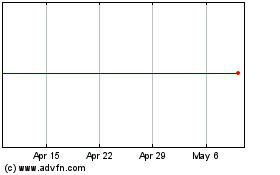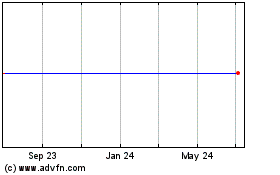Time Warner Faces Pressure To Recoup HBO Subscriber Losses
March 10 2011 - 2:30PM
Dow Jones News
HBO, home of popular TV shows like "Big Love" and "True Blood,"
faces a key test of its business model this year after its
subscriber rolls declined to an estimated five-year low in 2010,
causing concerns among investors about the threat of emerging
online video competitors.
HBO and Cinemax, Time Warner Inc.'s (TWX) stable of premium
cable networks, together lost about 1.6 million subscribers last
year, while Netflix Inc. (NFLX) added nearly 8 million--a
performance that was widely viewed as evidence that some consumers
have an appetite for viewing movies and TV shows on broadband
instead of pay-TV.
HBO and Cinemax increased their revenue last year despite the
subscriber declines as the losses came largely from customers who
didn't affect their business financially. That's because HBO still
met its subscriber guarantees to its cable and satellite partners,
and Time Warner has said the declines were largely caused by the
promotional activity of its distributors.
Now, though, two main factors cited by Time Warner executives as
causes behind the subscriber declines are history, and HBO is under
pressure to recoup subscribers and fend off skepticism about its
competitive position in a rapidly shifting media landscape.
"With the continued momentum in original programming, increased
rollout of [an online HBO service for subscribers] and
international growth, we feel confident about our 2011 business
performance," a spokesman for HBO said.
Specifically, Time Warner Chief Executive Jeff Bewkes has said a
majority of the 2010 declines were caused by a promotional offering
for Cinemax launched by satellite TV provider Dish Network Corp.
(DISH) in response to the economic downturn in 2008 and 2009. In an
effort to keep customers from dropping its service, Dish began
offering Cinemax for a year for one penny to subscribers in late
2008, and the offering was in place until early 2010, causing a
drop-off in HBO subscribers at that time.
Bewkes also cited a lack of promotion for HBO from another major
distributor, which was satellite TV provider DirecTV Group Inc.
(DTV) according to people familiar with the matter. DirecTV's
affiliate contract with HBO ran out last year during
behind-the-scenes negotiations over a renewal between the two
companies. As a result, the satellite giant halted its promotional
efforts for HBO, causing yet another drag on the channel's
subscribers.
DirecTV resumed its HBO promotions in January after gaining
on-demand rights to HBO programming, and the two companies are
nearing a contract renewal, according to people familiar with the
matter.
In addition, Bewkes has said economic weakness weighed on HBO's
subscriber results last year. Continued malaise in the U.S. housing
market, in particular, caused the first-ever quarterly subscriber
declines across the entire pay-TV industry in the second and third
quarters of 2010, but HBO's premium network competitors overcame
those headwinds.
Showtime, owned by CBS Corp. (CBS, CBSA), saw its subscriber
rolls grow by roughly 1.6 million, to 19.5 million, while Starz,
owned by Liberty Media Corp. (LSTZA, LINTA, LCAPA), increased
subscribers by 1.3 million, to 18.2 million, estimated Michael
Morris, analyst with Davenport & Co.
Morris estimates HBO finished 2010 with about 28 million
subscribers, its lowest level since the end of 2005, according to
estimates from SNL Kagan. Morris estimates that HBO's subscriber
levels have stabilized in the current quarter and may grow 1%. The
network has enjoyed recent critical success with its original
series "True Blood" and "Boardwalk Empire," but it has yet to find
another breakout hit in the same league with "The Sopranos" or "Sex
and the City."
Chris Albrecht, the executive who led HBO when the success of
those shows cemented its brand as one of the most powerful in
media, now leads Starz, where he's tasked with cobbling together a
new slate of original programming. Starz, along with Epix LLC--a
joint venture between Time Warner rivals Viacom Inc. (VIA, VIAB),
Lions Gate Entertainment Inc. (LGF) and Metro-Goldwyn-Mayer
Inc.--provides some of the most potent content available in
Netflix's streaming video service, including movie content from
studios owned by Walt Disney Co. (DIS) and Sony Corp. (SNE).
Meanwhile, some investors have lost enthusiasm for HBO's
position as a premium network that's only available as an upgrade
to traditional pay-TV subscriptions--a position that some view as
limiting the network's growth potential. That has led to questions
about whether Time Warner could offer HBO as part of the basic
cable tier for higher affiliate fees, or whether it could be
offered direct to consumers over broadband outside of pay-TV
offerings.
"[Time Warner's] tone seems to have become a bit more open to
those sorts of possibilities," Morris said.
On a recent conference call, Bewkes ruled out making HBO part of
basic cable. He said offering it direct to consumers over broadband
is possible, but the company has no plans to take that step.
"There are significant benefits in having our distributors
marketing [HBO], doing the customer service, providing the
infrastructure, both the video-on-demand streaming to your big TV,
and the Internet infrastructure that supports broadband delivery to
your house," he said. "These are not small items, and I think
everyone has to think carefully about what is needed to maintain
the capability of the broadband infrastructure to deliver
video."
-By Nat Worden, Dow Jones Newswires; 212-416-2472;
nat.worden@dowjones.com
CBS (NYSE:CBS)
Historical Stock Chart
From Jul 2024 to Aug 2024

CBS (NYSE:CBS)
Historical Stock Chart
From Aug 2023 to Aug 2024
